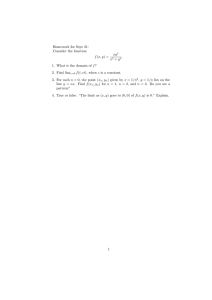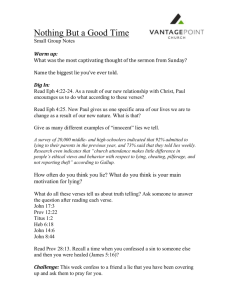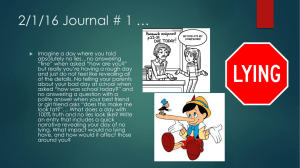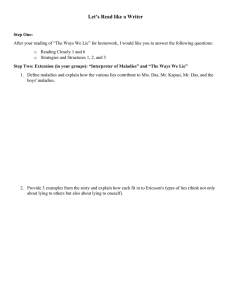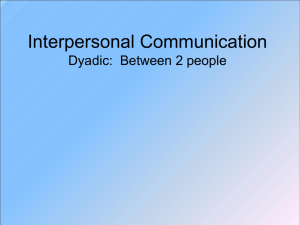Jacquie Cadorette 9(1) Language Arts Mrs. Kirk December 2, 2008
advertisement
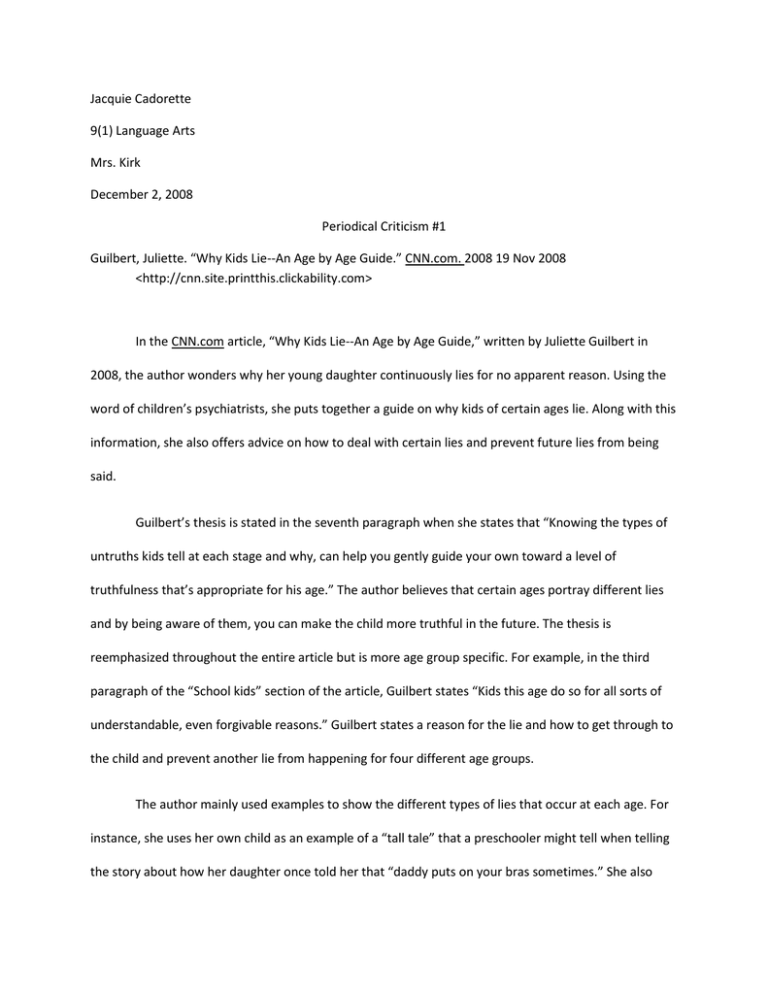
Jacquie Cadorette 9(1) Language Arts Mrs. Kirk December 2, 2008 Periodical Criticism #1 Guilbert, Juliette. “Why Kids Lie--An Age by Age Guide.” CNN.com. 2008 19 Nov 2008 <http://cnn.site.printthis.clickability.com> In the CNN.com article, “Why Kids Lie--An Age by Age Guide,” written by Juliette Guilbert in 2008, the author wonders why her young daughter continuously lies for no apparent reason. Using the word of children’s psychiatrists, she puts together a guide on why kids of certain ages lie. Along with this information, she also offers advice on how to deal with certain lies and prevent future lies from being said. Guilbert’s thesis is stated in the seventh paragraph when she states that “Knowing the types of untruths kids tell at each stage and why, can help you gently guide your own toward a level of truthfulness that’s appropriate for his age.” The author believes that certain ages portray different lies and by being aware of them, you can make the child more truthful in the future. The thesis is reemphasized throughout the entire article but is more age group specific. For example, in the third paragraph of the “School kids” section of the article, Guilbert states “Kids this age do so for all sorts of understandable, even forgivable reasons.” Guilbert states a reason for the lie and how to get through to the child and prevent another lie from happening for four different age groups. The author mainly used examples to show the different types of lies that occur at each age. For instance, she uses her own child as an example of a “tall tale” that a preschooler might tell when telling the story about how her daughter once told her that “daddy puts on your bras sometimes.” She also uses other stories of lies told by children of other age groups. By doing so, Guilbert uses real life examples that could potentially happen to others so that is easily related to. Guilbert also uses expert testimony by talking to child psychiatrist, Dr. Elizabeth Berger. On the topic of imaginary friends, Berger says, “If a child seems happy and has realistic relationships with the important people in his life, I would not be worried about his fantasizing. That’s what children did before there was TV.” Berger tells about what you should and shouldn’t be worried about as far as lies go and the reasoning behind it. Through these examples, Guilbert expresses that the lies children tell sometimes have deeper meanings behind them and most of the time shouldn’t be worried about. Guilbert worries about her child’s small lie and wonders if her child is becoming a pathological liar but is later told that small lies don’t necessarily mean her child has reached a “degree of extreme, excessive, or markedly abnormal” lying. Dr. Elizabeth Berger states in the article that it is best to not “get into a wrangle with the child” over bent truth or a white lie meaning that an “argument or controversy” with the lying child may not be the best way of handling things. She even states that it may just make things worse. This article came up as very interesting to me because a lot of the points made were relevant to lies that I have witnessed made by small children. It is mentioned in the article that some children make their imaginary friends not as a lie but as a depiction of what they themselves would be like if they could do whatever they wanted yet the imaginary friend also goes through the same hardships that the child may. I found this particularly intriguing because I know of kids whose imaginary friends are in fact a depiction of a perfect world in the child’s eyes. For instance, the friend may never have to eat vegetables and always get to stay up late. Although, the imaginary friend loses its favorite doll every once in while or something of a similar matter as does the child. I also found it interesting when the child psychiatrist mentions that lies made by children may be an indication of a smart child. Lying may show that the child has thought the situation through and come to a conclusion that they find to be better for them, but only if they lie. The advice given in this article should definitely be put to use so children can grow up knowing that being truthful tends to work out better than telling lies.
